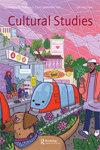多物种哀悼:西巴布亚种植园边界的反抗
IF 1.2
3区 社会学
Q1 ANTHROPOLOGY
引用次数: 2
摘要
摘要本文探讨了西巴布亚梅劳克农村土著水手社区哀悼的文化、政治和情感意义,他们与当地植物、动物和生态系统的亲密和祖先关系日益受到大规模砍伐和单作油棕榈扩张的威胁。我将土著哲学与环境人文学科交叉传播,研究了巴布亚油棕榈边境“多物种哀悼”的三种新兴实践——编织西米袋作为集体治疗的一种形式,创作因遭遇路杀而引发的歌曲,以及移植竹笋,作为传统开垦活动的一部分。多种族的哀悼为马林纪念资本主义景观转型所导致的生命和关系的根本损失提供了有力的途径。与此同时,面对采掘资本主义的生态灭绝逻辑,多物种的哀悼构成了积极抵抗和创造性拒绝的形式。将植物、人和地方聚集在一起,它们分散的感知力和物质性为多物种团结提供了充满希望的途径,无论是在农业工业化的废墟中还是在其腐朽的政治基础上。本文章由计算机程序翻译,如有差异,请以英文原文为准。
Multispecies mourning: grieving as resistance on the West Papuan plantation frontier
ABSTRACT
This article explores the cultural, political, and affective significance of mourning among the Indigenous Marind communities of rural Merauke West Papua, whose intimate and ancestral relations to native plants, animals, and ecosystems are increasingly threatened by mass deforestation and monocrop oil palm expansion. Cross-pollinating Indigenous more-than-human philosophies with environmental humanities scholarship, I examine three emergent practices of ‘multispecies mourning’ on the Papuan oil palm frontier – the weaving of sago bags as a form of collective healing, the creation of songs prompted by encounters with roadkill, and the transplanting of bamboo shoots as part of customary land reclaiming activities. Multispecies mourning offers potent avenues for Marind to memorialize the radical loss of lives and relations prompted by capitalist landscape transformations. At the same time, multispecies mournings constitute forms of active resistance and creative refusal in the face of extractive capitalism’s ecocidal logic. Bringing together plants, people, and places, their dispersed sentience and materiality offer hopeful pathways for multispecies solidarities, in and against the rubble of agro-industrialism and its necropolitical undergirdings.
求助全文
通过发布文献求助,成功后即可免费获取论文全文。
去求助
来源期刊

Cultural Studies
Multiple-
CiteScore
3.50
自引率
6.70%
发文量
0
期刊介绍:
Cultural Studies is an international journal which explores the relation between cultural practices, everyday life, material, economic, political, geographical and historical contexts. It fosters more open analytic, critical and political conversations by encouraging people to push the dialogue into fresh, uncharted territory. It also aims to intervene in the processes by which the existing techniques, institutions and structures of power are reproduced, resisted and transformed. Cultural Studies understands the term "culture" inclusively rather than exclusively, and publishes essays which encourage significant intellectual and political experimentation, intervention and dialogue.
 求助内容:
求助内容: 应助结果提醒方式:
应助结果提醒方式:


